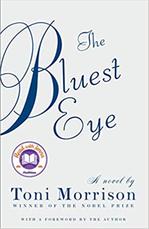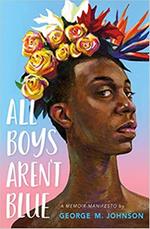
|

|
 |
The precarious state of free expression and of the First Amendment was highlighted in the past week by what New York Times columnist Michelle Goldberg called "A Frenzy of Book Bannings." In the Friday piece, Goldberg noted "an aggressive new censoriousness tearing through America, as the campaign against critical race theory expands into a broader push to purge school libraries of books that affront conservative sensibilities regarding race and gender. As Deborah Caldwell-Stone, director of the American Library Association's Office for Intellectual Freedom, told her, "There's always been a steady hum of censorship, and the reasons have shifted over time. But I've never seen the number of challenges we've seen this year."
And this month, there's a new twist: two members of a Virginia school board that voted unanimously to remove books with "sexually explicit" material in them from system's libraries also called for the removed books to be burned, which brings to mind images of book burnings in Nazi Germany in the 1930s.
Among the many titles at issue in recent months: Beloved and The Bluest Eye by Toni Morrison, Fun Home by Alison Bechdel, All Boys Aren't Blue by George M. Johnson, Gender Queer by Maia Kobabe, Out of Darkness by Ashley Hope Pérez, The Confessions of Nat Turner by William Styron and Middlesex by Jeffrey Eugenides.
Goldberg noted that "With the rush to ban critical race theory, conservatives already gave up posturing as defenders of free speech. Still, this sudden mania for book banning is striking. It's part of a broader attack on public schools, one that draws on anger over critical race theory, mask mandates and sometimes even QAnon-inflected fears about pedophile conspiracies."
Goldberg emphasized, "This spreading moral panic demonstrates, yet again, why the left needs the First Amendment, even if the veneration of free speech has fallen out fashion among some progressives. Absent a societal commitment to free expression, the question of who can speak becomes purely a question of power, and in much of this country, power belongs to the right."
She again quoted the ALA's Caldwell-Stone: "What we're seeing is really this idea that marginalized communities, marginalized groups, don't have a place in public school libraries, or public libraries, and that libraries should be institutions that only serve the needs of a certain group of people in the community."

